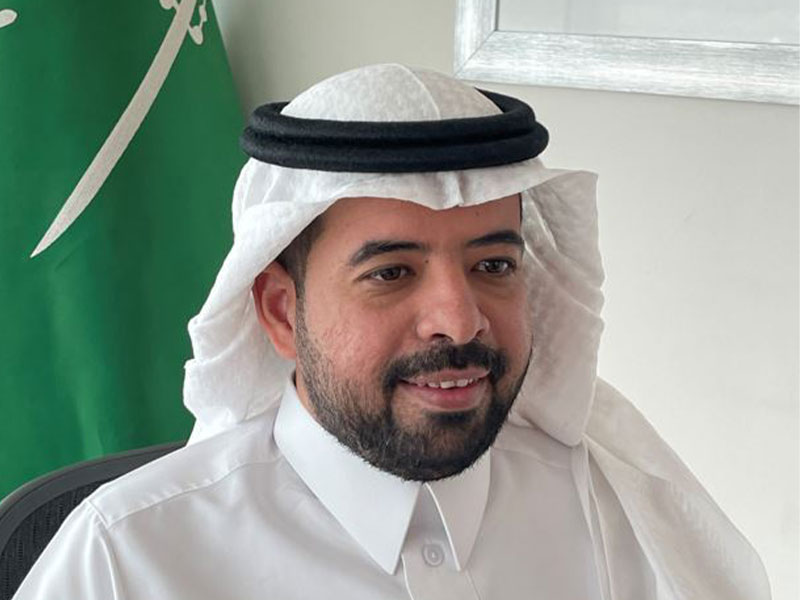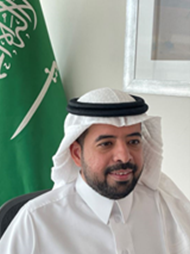-
About
-
Outcomes
-
Conference
-
Events


New energy sources are being sought in the Kingdom of Saudi Arabia, one of the oil giants. The King Abdullah City for Atomic and Renewable Energy (K.A.CARE), which seeks to participate in this year’s RD20 for the first time, is governmental organization that seeks to promote nuclear and renewable energy. We asked Eng. Hisham Sumayli, Local Content and Capability Sector Head of K.A.CARE, about K.A.CARE’s role and expectations for RD20.
K.A.CARE is working to solve environmental issues through the promotion of nuclear power and renewable energy. One of its activities is collaboration with domestic universities and industry. Their goal is to find, develop, and promote clean technologies and their solutions. “We are conducting a program of technology to overcome the economic and technological problems we are facing in Saudi Arabia,” says Eng. Sumayli. Through these efforts, they seek to bridge the gap between universities and industry in order to respond to needs in the ecosystem and create an industrial impact. Although K.A.CARE works with universities to capitalize on the existing laboratories and infrastructure.
One example of this program of technology domestication is one of its industrial applications, the solar system. This application involves industry utilizing the heat of the sun. Generally, heat was generated by converting heat from electric heaters, but in this project, solar heat will be used directly. This program solicited industry to demonstrate solar thermal processes last year, and there were some startups that developed solar thermal process technology, and applied to K.A.CARE’s program. They are now in the process of realizing their technology and are trying to test new technologies and demonstrate that they can be applied.
Saudi Arabia is developing a solar thermal process for the following reasons. Saudi Arabia does not generate heat directly from oil, but from electricity by means of heaters. However, the cost of heat conversion from electricity is high. K.A.CARE conducted an analysis and found that it was economically sensible to use solar thermal energy. They were confident that this technology could have an impact on the ecosystem in government, industry, and universities in Saudi Arabia.
There are other topics besides solar thermal. One is reliable desalination technology to remove salt from seawater. The demand for technology to convert seawater into fresh water is extremely high. In addition, there are activities underway in the area of micro-grids based on renewable energies. Since Saudi Arabia has many small cities scattered throughout the countryside, there is a need for a renewable energy micro-grid for each locality. There is also a demand for cooling technology using renewable energy, which promotes the integration of renewable energy into the cooling system.
The premise of these technologies is to promote the use of renewable energy. The use of fossil fuels is being reduced as much as possible, and the micro-grids mentioned earlier will also use renewable energy sources such as solar and wind power. In Saudi Arabia, as well, fossil fuels will be reduced as much as possible and renewable energy will be secured.
Saudi Arabia also collaborates with international laboratories such as their well-known partner, the National Renewable Energy Laboratory (NREL) in the United States. They are jointly developing technical areas needing attention and an evaluation process for proposals from industry.
In Japan, they are also working with the National Institute of Advanced Industrial Science and Technology (AIST) and the New Energy and Industrial Technology Development Organization (NEDO). For example, they have set standards tailored to the region. Saudi Arabia has a demanding environment and does not have adequate access to certain resources, so international standards cannot be used there. With the temperature and heat being particularly challenging, they are developing standards suitable for Saudi Arabia with AIST. They are also working with NEDO on a micro-grid project using renewable energy, which they intend to apply in Saudi Arabia.
An example of a successful international collaboration project is solar thermal systems. King Saud University is developing a solar concentrator system in cooperation with Sandia National Laboratories in the United States. In particular, the scale of the third-generation falling particle technology (a method of transporting heat by dropping ceramic particles with high heat storage capacity) solar concentrator system is expected to be feasible at a reasonable cost. The topic of solar thermal is not just about heat generation, but also covers solar thermal processes, their applications, and thermal storage. Eng. Sumayli
says, “We don’t have exact quantitative energy output figures, but Saudi Arabia has some of the best data at the R&D level.” Economically, this solar concentrator system is expected to achieve 6 cents per kW of electricity generated.
Saudi Arabia’s K.A.CARE has not yet participated in previous RD20s, but plans to participate this year. Eng. Sumayli says, “We will provide a description of the activities of K.A.CARE in the four years since its establishment, including what Saudi Arabia has actually accomplished in its technical programs as well as research topics and structure, development of standards, and collaboration between universities and companies.”
Although they have not yet collaborated with a Japanese university, they hope that their trip to Japan will lead to collaborations with universities and various research institutions. In addition, Eng. Sumayli believes, “There is a lot we would like to know such as how other research institutions interact with the ecosystem, how they promote R&D with universities, and how they coordinate and activate these activities. Learning about and experiencing these programs will prove useful for K.A.CARE.”
Kenji Tsuda Editor in Chief, Semiconductor Portal